Lac du Flambeau road closures bring call from Gov. Tony Evers and Sen. Tammy Baldwin for quick resolution as residents seek solutions
- Oops!Something went wrong.Please try again later.
- Oops!Something went wrong.Please try again later.
LAC DU FLAMBEAU - As the road closure standoff entered its second week on the Lac du Flambeau Ojibwe Reservation in northern Wisconsin, non-Native property owners met with local officials again to seek a resolution.
Dozens of residents packed the Lac du Flambeau Town Hall building Feb. 8 and the conversations between the non-tribal folks and the few tribal folks there appeared cordial.
One resident at the meeting, Mary Possin, whose property is one of those affected by the road closures, said: “What’s spinning here with a lot of folks is ‘What does the tribe want?’ It strikes me that the fundamental belief the tribe is building this on is their sovereignty. This is about sovereignty.”
The tribe set up four roadblocks across the reservation on Jan. 31, cutting off access to properties owned by some 65 non-Native families.
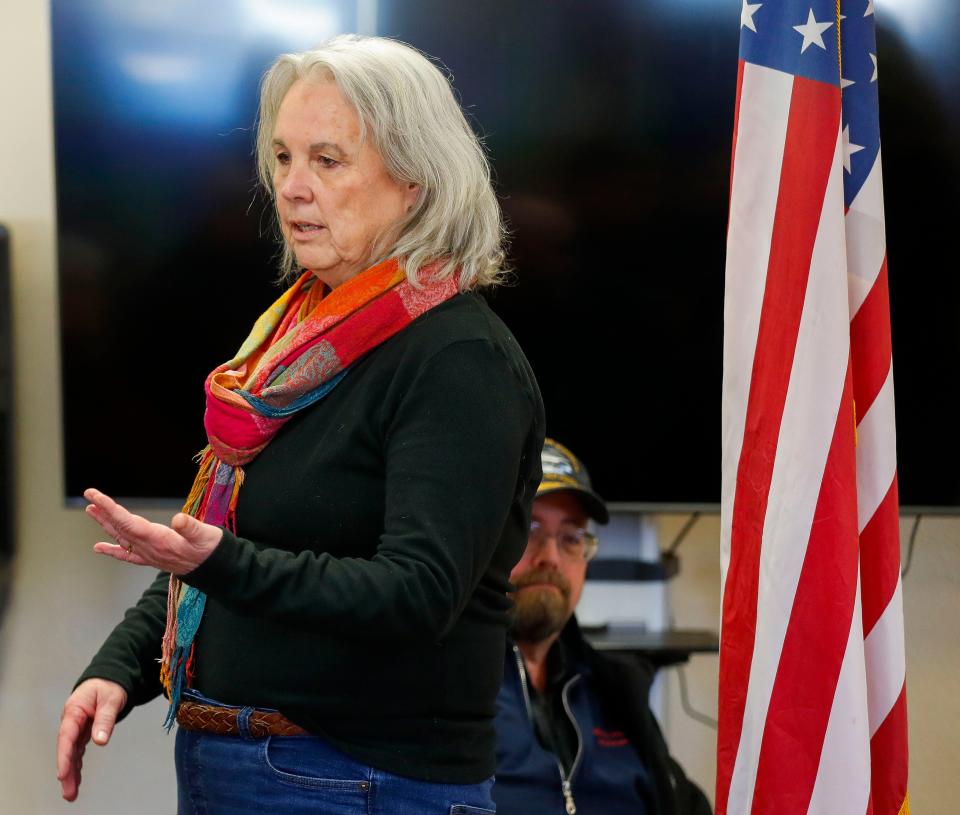
“When one culture approaches another culture with something they want and there’s a failure to understand, it’s easy to throw up your hands and say you can’t talk to each other,” Possin said.
The situation has been “hell” for her, as it was a struggle just to get to the meeting, she said.
To leave their properties, some homeowners are resorting to riding a snowmobile through woods or across a frozen lake and then meeting up with neighbors for additional transportation.
Tribal officials said the four roads — Annie Sunn Lane, Center Sugarbush Lane, East Ross Allen Lane and Elsie Lake Lane — had been illegally built on tribal land and the easements for them expired more than 10 years ago.
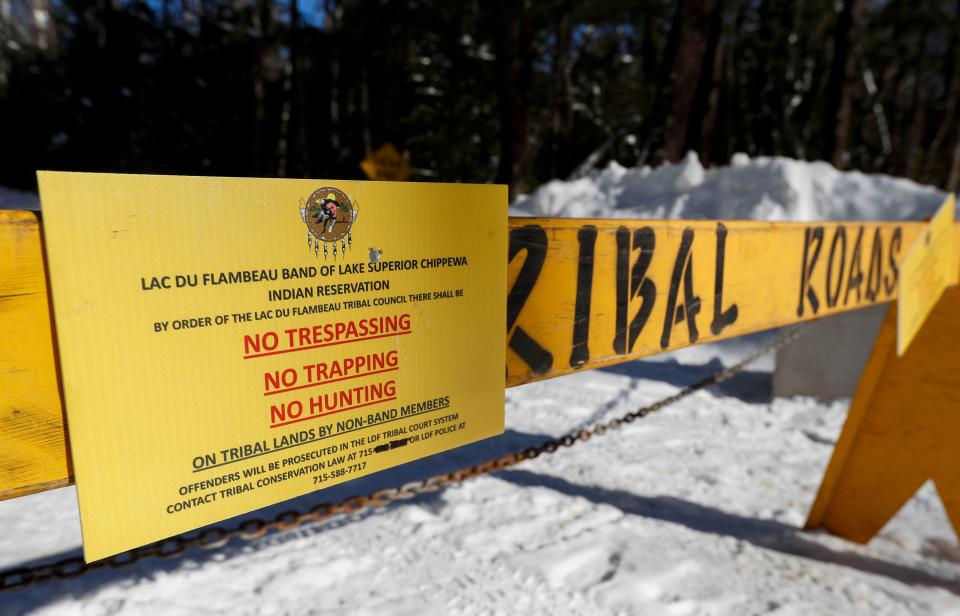
In a statement, Lac du Flambeau Tribal President John Johnson said title companies, including First American Title Company, which has an office in Green Bay, and Chicago Title Insurance Company, issued defective title policy commitment letters to homeowners that did not address access over Indian lands.
“Imagine if someone built a road through your property without your permission to access land on the other side of your property,” Johnson said. “A title company then tells your neighbor they are guaranteed access forever to their property through your land over the illegally built road. How would you feel about it? Wouldn’t you want to make sure, even though the road was built illegally to begin with, that everyone acknowledged that you owned the access road that rests on your land, and people using the road follow reasonable expectations for continued use of the road?”
Delayed negotiations
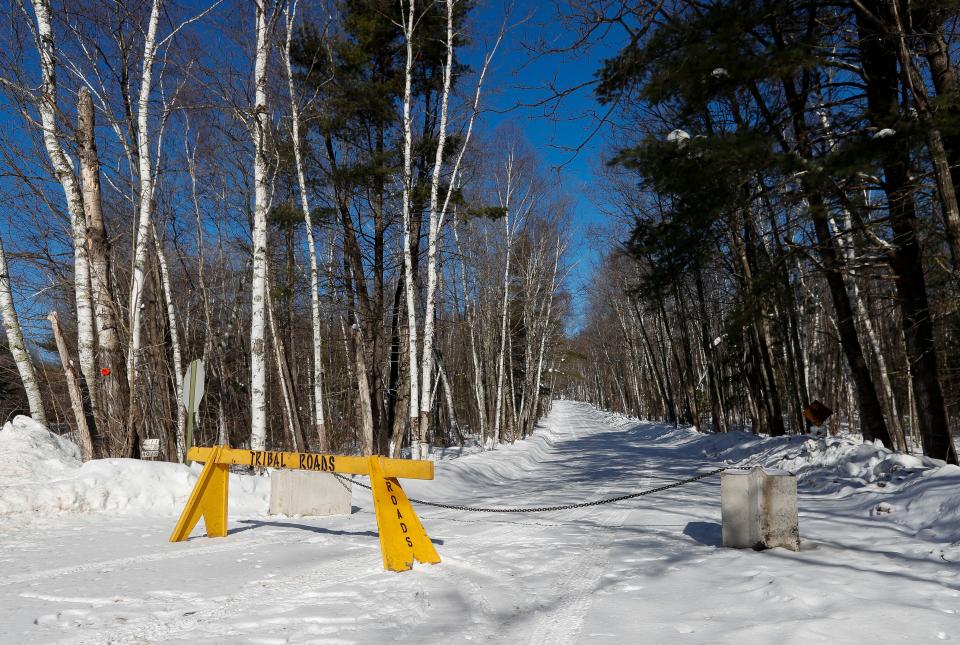
Tribal officials said they have been trying to work with the title companies, the town of Lac du Flambeau and the federal Bureau of Indian Affairs for years to resolve the matter, but to no avail.
“The Town of Lac du Flambeau, the BIA, and the subsequent title companies representing property owners have all played a contributing role in the situation that we are responding to today,” read a statement from the tribe.
Tribal officials said town officials had not given the issue proper attention after the tribe notified the BIA of the expiring easements.
The BIA gave notices of the expired easements to affected property owners who, in turn, reached out to their title companies, who subsequently contacted their attorneys, the tribe said.
Attorney Bridget M. Hubing of Reinhart Attorneys at Law was hired by the title companies and 37 of the affected property owners. She said in a statement, “When the Town and the Tribe could not agree on ownership of the roads, my clients agreed to proceed with the federally mandated process for obtaining new rights of way, which the Bureau of Indian Affairs stated would cost $25,000 per parcel based on prior grants of easements on the Lac du Flambeau Indian Reservation.”
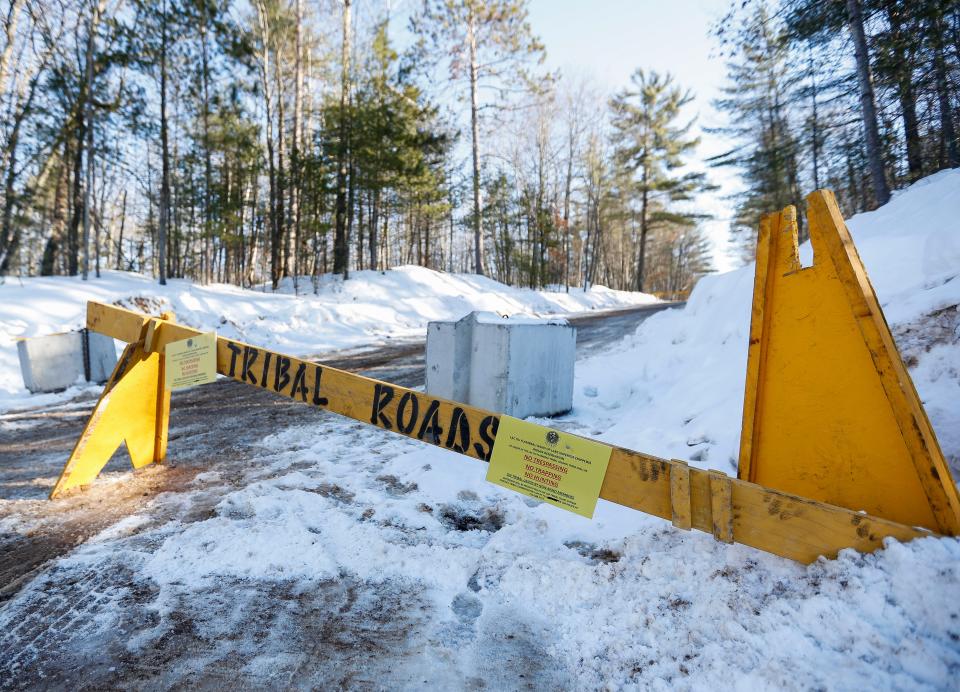
Hubing said a required appraisal process was underway when the tribe delivered a settlement demand of $10 million on Oct. 26, 2022, for 33 rights-of-way applications that were submitted.
“Because the demand of $303,030 per parcel was 10 times more than the $25,000 stated in the BIA’s correspondence, we requested a copy of the appraisals,” she said.
Then on Jan. 6, 2023, Hubing said the tribe raised its settlement demand to $20 million.
"The Tribe arrived at $20 million by accounting for all the fees and expenses we’ve incurred trying to secure an agreement to provide access for property owners using tribal lands, as well as the cost of illegally using tribal lands over 10 years since the easements expired," tribal officials said in a statement.
The statement read that the tribe years ago had offered standard 25-year leases used by municipal governments, but the town and the title companies have acted disingenuously and delayed the process.
Tribal officials also said the appraisals being conducted were defective.
“The tribe is fed up with the title companies’ games," Johnson previously stated. "Title companies could have settled the situation by paying a fraction of what is being asked for now. Individual property owners are essentially being held hostage by title companies unwilling to negotiate in good faith.”
Marcus Ginnaty, spokesman for First American Title, released a statement this week saying his company is willing to negotiate and have requested that the roadblocks be removed during the negotiation process.
Town of Lac du Flambeau Chairman Matt Gaulke announced during the Feb. 8 special town board meeting that Gov. Tony Evers and U.S. Sen. Tammy Baldwin sent a joint letter that day to the BIA pleading for a quick resolution.
The letter mentioned that the Tribe made numerous attempts to reach out to the BIA's Midwest Regional Office over several years, but there has been no response from the BIA.
"This is unnacceptable, and we expect immediate engagement from BIA to aid in negotiations," the letter from Evers and Baldwin read. "The situation is untenable for all parties and requires active involvement from the BIA to reach a resolution."
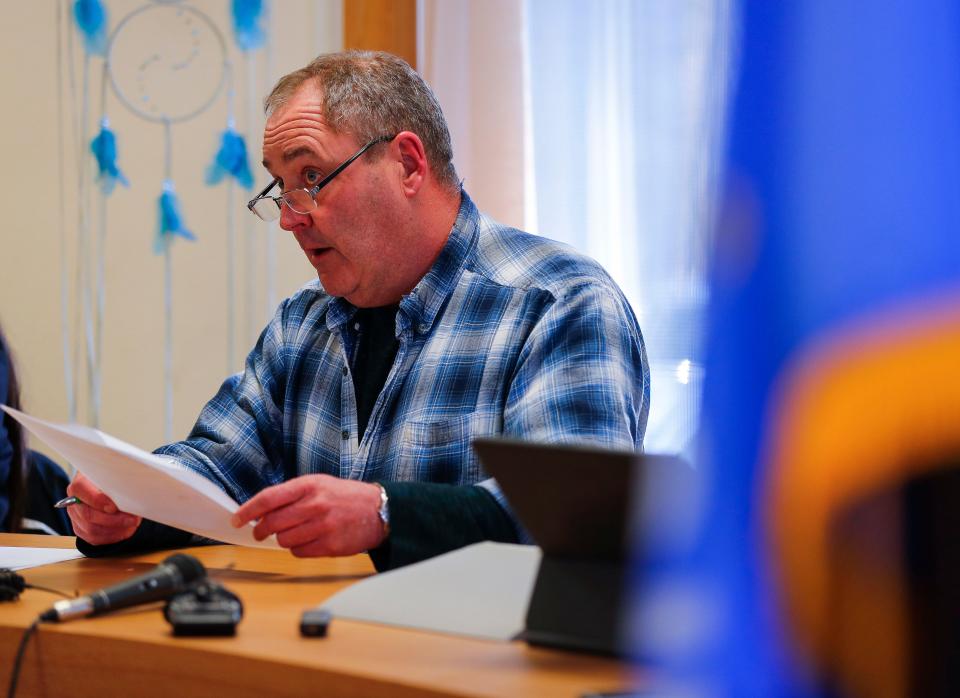
Future of other roads questioned
Many residents at the meeting expressed concern about which other roads may have leases expiring soon with the tribe.
Gaulke said there is a list of roads and that list was later posted on the town's website. It includes eight more roads with lease expiration dates ranging from later this year through 2063.
Resident Cindy Lee said officials need to make sure to avoid a similar situation in the future.
“I intend to leave our property to our children,” she said. “We love Lac du Flambeau. How do we make sure my children are going to enjoy the home we built?”
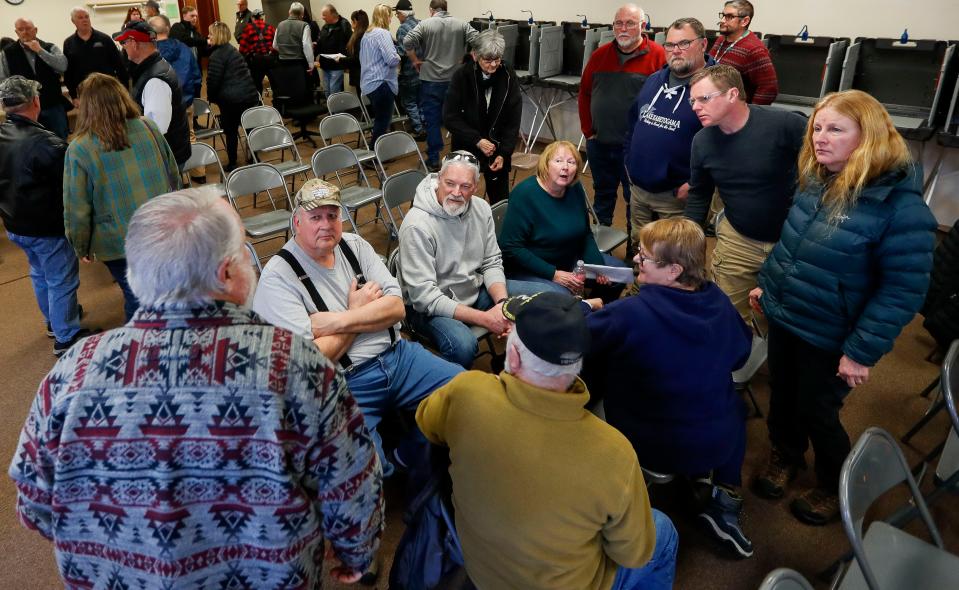
Some of the property owners said they would’ve reconsidered building in Lac du Flambeau had they known about the expiring road leases, but have to now stay because they’ve invested much of their savings and retirement income.
Properties are listed in the area priced at hundreds of thousands of dollars.
Living side by side
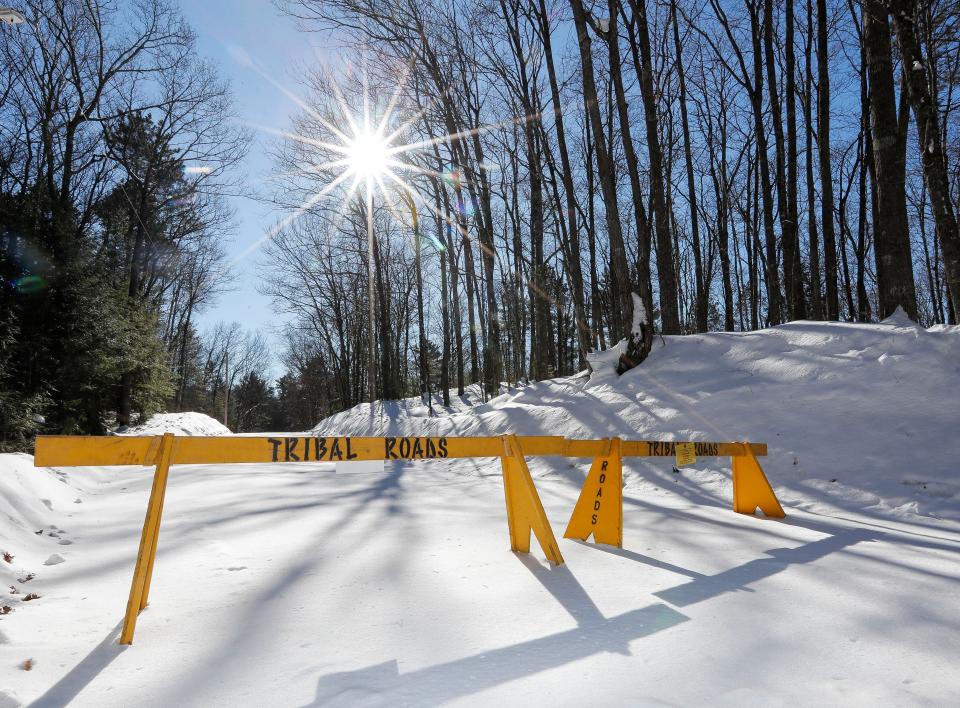
The 86,600-acre Lac du Flambeau Reservation is primarily in Vilas County in northern Wisconsin. It includes about 1,700 non-tribal households and about 2,300 tribal households. The tribe has a population of about 3,500 citizens.
The Lac du Flambeau tribe, like most tribes in the U.S., does not own some of the land on its reservation largely because of the Dawes Act.
Congress, in the late 1800s, started a nationwide policy of encouraging individual ownership on reservations by tribal members in an effort to force them to assimilate into American society.
Much of those individual parcels were eventually conveyed to non-Indigenous people by sale, foreclosure or enforcement of tax liens, and much of the tribal land was lost.
Congress later reversed its policy with the 1934 Indian Reorganization Act, but the damage had been done.
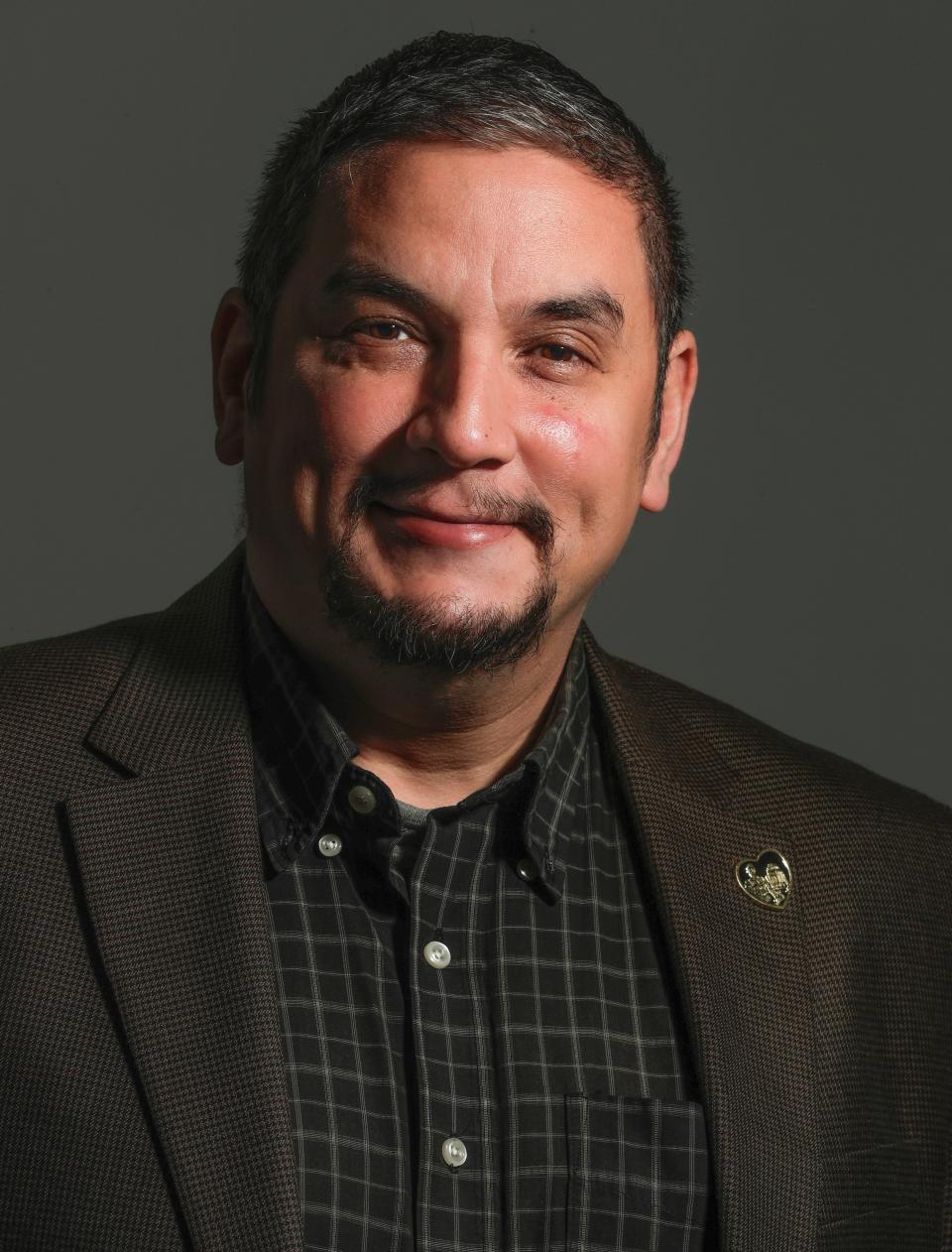
Sign up for the First Nations Wisconsin newsletter Click here to get all of our Indigenous news coverage right in your inbox
Tom Maulson, a Lac du Flambeau tribal citizen and former tribal president who’s been attending the town meetings, said the attitude of the surrounding non-tribal communities is nowhere near approaching the hateful rhetoric and vitriol that it had 30 years ago when he was in charge.
He said his administration also had closed down an illegally built road on tribal land before reaching an agreement with property owners.
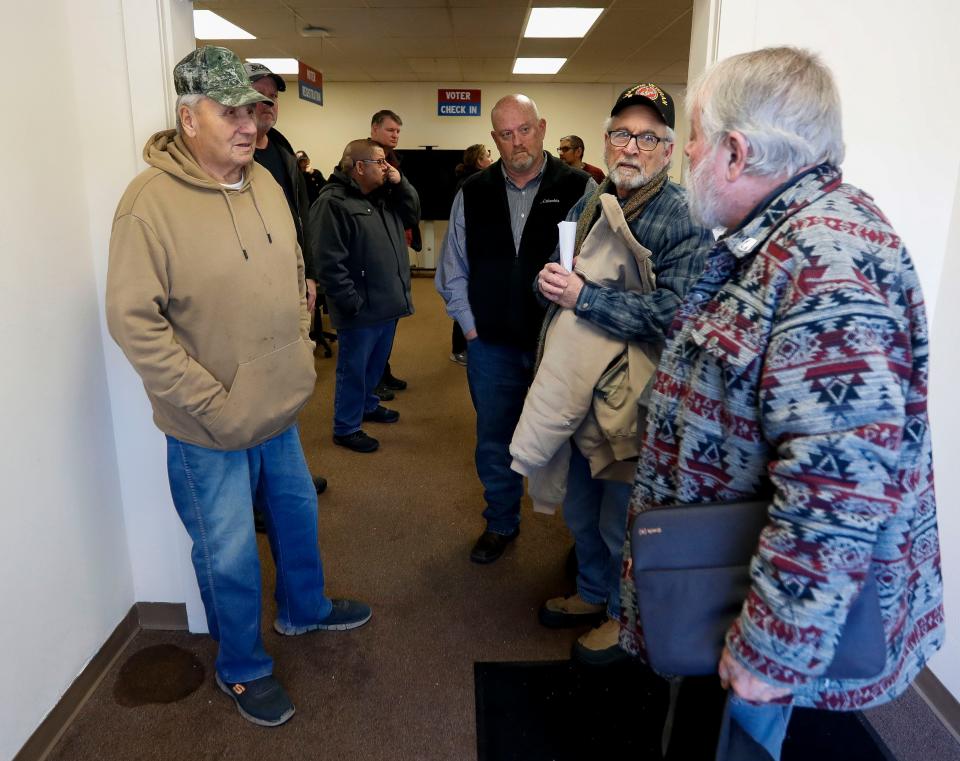
Maulson also was a leader in the campaign for Ojibwe spearfishing rights in the Northwoods in the 1980s and 1990s.
The rights for Ojibwe people to hunt and fish off-reservation in what is known as the Ceded Territory, which includes much of the Wisconsin Northwoods, are guaranteed by U.S. and tribal law through early to mid-19th century treaties in exchange for the government taking Ojibwe land.
Wisconsin state government had ignored or eventually forgotten about these treaty rights after statehood.
Then, in 1974, brothers Fred and Mike Tribble, who are Lac Courtes Oreilles Ojibwe tribal citizens in Wisconsin, alerted the Wisconsin Department of Natural Resources that they intended to fish off-reservation and were charged.
The brothers challenged the citations in federal court and won against the state in a 1983 ruling known as the Voight Decision. Judges in following years repeatedly upheld the Anishinaabe people’s right to fish and hunt off-reservation in subsequent rulings and struck down state appeals.
Scores of Ojibwe then started coming to the boat landings to exercise their civil rights weeks before the non-tribal fishing season starting, to the ire of locals.
Hundreds and thousands of anti-treaty protesters also started going to the boat landings in the late 1980s.
Confrontations by many soon escalated, and rock-throwing, gunshots, death threats, and racial and sexual taunts soon became common occurrences, according to multiple reports.
Maulson said he had a $30,000 bounty on his head.
“I was the most hated man in Wisconsin,” he said.
Maulson has since made peace with some of the anti-treaty protest organizers.
Breakdowns in communication
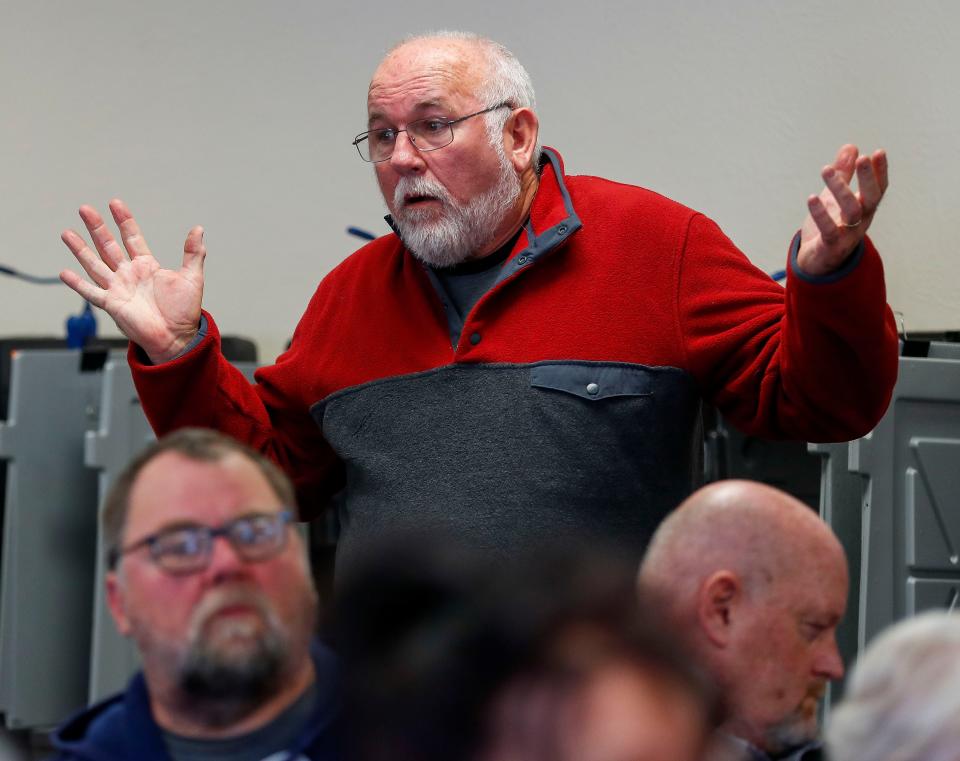
During this latest situation, Maulson said town officials haven’t done a good job in explaining the matter to residents. He said everyone should educate themselves about Ojibwe treaty rights.
After hearing public comments, the town board went into a closed executive session. After returning to the open meeting, they announced Gaulke would write a letter that would be hand-delivered to Tribal President John Johnson that day.
The contents of the letter were later made public.
"The Town Board respects the Tribe as a sovereign nation and looks forward to working together on issues of mutual concern, now and in the future," the letter read in part. "The Town apologizes if the Tribe had expected the Town to provide compensation for these roads. … The Town believes that respectful and open communication in a face-to-face meeting with the Tribe to discuss the options for compensation and resolution would be vital for the process and everyone involved."
Welfare checks on affected residents
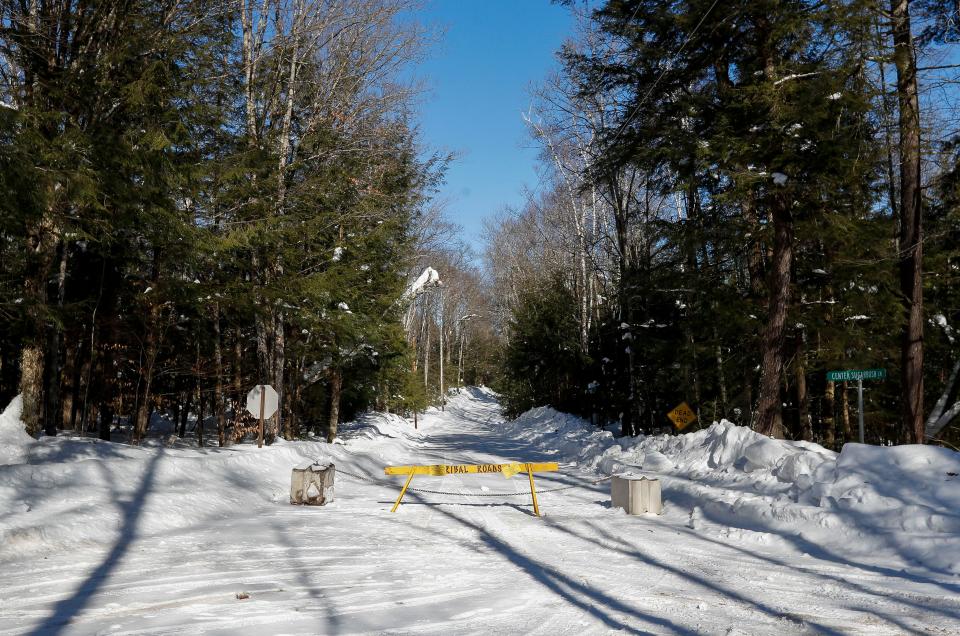
Vilas County Sheriff Joe Fath said his department has been in contact with tribal officials daily. He said the tribe is doing a good job in welfare checks of the affected residents and making sure they have their food and prescription medications.
But Fath said this is a civil matter between private landowners and he doesn’t have the authority to remove the barricades.
Affected residents confirmed that tribal police have stopped by to check on their well-being.
"It may be difficult for others to appreciate this, but the Tribe has been a victim of faulty paper documents for over 200 years dating back to the Treaty of 1837," tribal officials said in a statement. "This historical trauma informs the Tribe’s steadfast decision to safeguard what little land it has left."
Frank Vaisvilas is a Report for America corps member who covers Native American issues in Wisconsin based at the Green Bay Press-Gazette. Contact him at fvaisvilas@gannett.com or 815-260-2262. Follow him on Twitter at @vaisvilas_frank.You can directly support his work with a tax-deductible donation online at GreenBayPressGazette.com/RFA or by check made out to The GroundTruth Project with subject line Report for America Green Bay Press Gazette Campaign. Address: The GroundTruth Project, Lockbox Services, 9450 SW Gemini Drive, PMB 46837, Beaverton, Oregon 97008-7105.
This article originally appeared on Green Bay Press-Gazette: Lac du Flambeau road closures: Evers, Baldwin seek quick resolution

